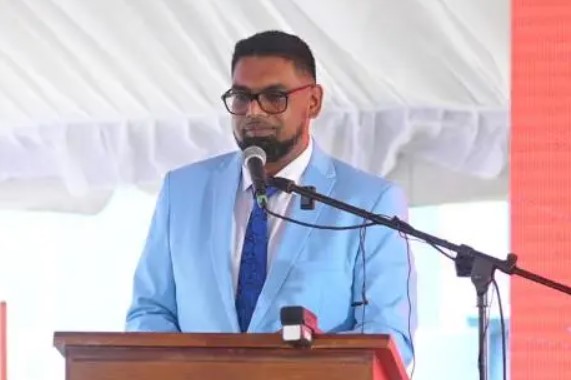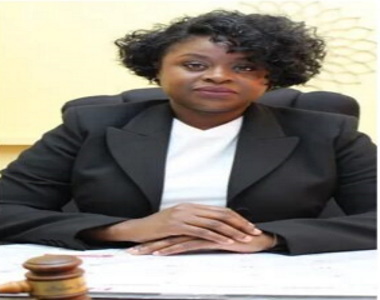CMC – A High Court judge Wednesday ruled that President Irfaan Ali did not violate the country’s constitution when he made moves to announce the appointment of the Chancellor and Chief Justice.
Justice Damone Younge urged Opposition Leader, Aubrey Norton, to move quickly to hold discussions with President Ali in keeping with the provisions of the Constitution regarding the appointments.

“No further delay and excuse will countenance,” Justice Younge said, noting the decades-long delay in the non-appointment of the office holders to the two top judicial posts.“This court finds that given the particular circumstances have tended to this case delay in initiating the process for the substantive appointment of the Chancellor and Chief Justice by His Excellency the President under Article 127(1) is not a breach of the Constitution, for this court is unable to find that such a delay meets a threshold of gross dereliction of constitutional duty on the part of the President,” she said.
The High Court noted that then opposition leader Joseph Harmon had shown no willingness to consult with the President and it was only after Norton had become Opposition Leader that any interest was shown in the appointment of certain persons.
The judge noted that Norton’s representative, attorney Roysdale Forde had formally informed the Minister of Parliamentary Affairs and Governance, Gail Teixeira, that the Opposition Leader would support the substantive appointment of Justices Yonette Cummings and Roxane George-Wiltshire to the post of Chancellor of the Judiciary and Chief Justice respectively.
“The name parties have a mandatory obligation to comply with the provisions of the Constitution to meet these appointments. This necessarily requires active engagement, mutuality and sincere receptivity by the Constitutional actors,” the judge said, saying it was also opportune for the Head of State to make good on his previously stated commitment to consult and so prevent any further delay.
“Therefore, by all counts, the way is now clear for the for this engagement to commence and no further delay or excuses ought to be countenance never responded has said that the President has repeatedly stated his intention and commitment to comply with all his duties under the Constitution.
“In this Court’s view, there would be no better way that the President can demonstrate this unassailable saleable devotion and commitment and his duties than by acting with alacrity to initiate the process for the eventual substantive appointment of Chancellor and Chief Justice,” she said.
Justice Younge said such a prolonged delay in those appointments exposed the independence of the judiciary.
“The absence of substantive appointments to the offices of Chancellor and Chief Justice, particularly for the protracted length of time that we have experienced in Guyana, fails to insulate the judiciary from attacks on its independence as provided for in article 128 of the Constitution, which threatens the very fabric of our thriving democracy,’ she said.

In April 2022, the President of the Caribbean Court of Justice, (CCJ), Justice Adrian Saunders, described as a notable stain on Guyana’s judicial landscape, the non-appointment of the Chancellor and Chief Justice.
“There is one significant blot on an otherwise impressive Guyanese legal and judicial landscape. For the country to have not appointed a Chancellor for 17 long years is very disappointing; likewise, to be without an appointed Chief Justice for several years. As the President of your final court, I believe I have a right and a duty publicly to express the view that Guyana should not let this year pass and not remedy this regrettable situation,” he told a dinner hosted by the Guyana Bar Association (GBA).
His predecessor, Sir Dennis Byron was also critical of the non-appointments warning that prolonged acting appointments pose a genuine “risk” to the promise to citizens of an independent and impartial judiciary.
“The ingloriousness of our country’s unique position has not escaped the notice of jurists in the region, particularly those of the presidents of our apex court, the Caribbean Court of Justice,” Justice Young said in her ruling.





More Stories
West Terrace Primary celebrate 2024 NAPSAC victory
Farmer working to grow interest in pineapple farming
Lifeline Barbados officially launched